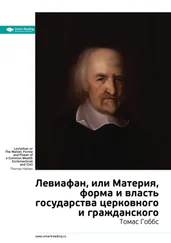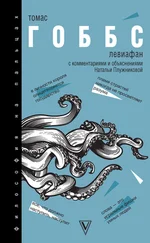To know the naturall cause of Sense, is not very necessary to the business now in hand; and I have els–where written of the same at large. Nevertheless, to fill each part of my present method, I will briefly deliver the same in this place.
The cause of Sense, is the Externall Body, or Object, which presseth the organ proper to each Sense, either immediatly, as in the Tast and Touch; or mediately, as in Seeing, Hearing, and Smelling: which pressure, by the mediation of Nerves, and other strings, and membranes of the body, continued inwards to the Brain, and Heart, causeth there a resistance, or counter–pressure, or endeavour of the heart, to deliver it self: which endeavour because Outward, seemeth to be some matter without. And this Seeming, or Fancy, is that which men call sense; and consisteth, as to the Eye, in a Light, or Colour Figured; To the Eare, in a Sound; To the Nostrill, in an Odour; To the Tongue and Palat, in a Savour; and to the rest of the body, in Heat, Cold, Hardnesse, Softnesse, and such other qualities, as we discern by Feeling. All which qualities called Sensible, are in the object that causeth them, but so many several motions of the matter, by which it presseth our organs diversly. Neither in us that are pressed, are they anything els, but divers motions; (for motion, produceth nothing but motion.) But their apparence to us is Fancy, the same waking, that dreaming. And as pressing, rubbing, or striking the Eye, makes us fancy a light; and pressing the Eare, produceth a dinne; so do the bodies also we see, or hear, produce the same by their strong, though unobserved action, For if those Colours, and Sounds, were in the Bodies, or Objects that cause them, they could not bee severed from them, as by glasses, and in Ecchoes by reflection, wee see they are; where we know the thing we see, is in one place; the apparence, in another. And though at some certain distance, the reall, and very object seem invested with the fancy it begets in us; Yet still the object is one thing, the image or fancy is another. So that Sense in all cases, is nothing els but originall fancy, caused (as I have said) by the pressure, that is, by the motion, of externall things upon our Eyes, Eares, and other organs thereunto ordained.
But the Philosophy–schooles, through all the Universities of Christendome, grounded upon certain Texts of Aristotle, teach another doctrine; and say, For the cause of Vision, that the thing seen, sendeth forth on every side a Visible Species(in English) a Visible Shew, Apparition, or Aspect, or a Being Seen; the receiving whereof into the Eye, is Seeing. And for the cause of Hearing, that the thing heard, sendeth forth an Audible Species, that is, an Audible Aspect, or Audible Being Seen; which entring at the Eare, maketh Hearing. Nay for the cause of Understanding also, they say the thing Understood sendeth forth Intelligible Species, that is, an Intelligible Being Seen; which comming into the Understanding, makes us Understand. I say not this, as disapproving the use of Universities: but because I am to speak hereafter of their office in a Common–wealth, I must let you see on all occasions by the way, what things would be amended in them; amongst which the frequency of insignificant Speech is one.
Chapter II.
Of Imagination
That when a thing lies still, unlesse somewhat els stirre it, it will lye still for ever, is a truth that no man doubts of. But that when a thing is in motion, it will eternally be in motion, unless somewhat els stay it, though the reason be the same, (namely, that nothing can change it selfe,) is not so easily assented to. For men measure, not onely other men, but all other things, by themselves: and because they find themselves subject after motion to pain, and lassitude, think every thing els growes weary of motion, and seeks repose of its own accord; little considering, whether it be not some other motion, wherein that desire of rest they find in themselves, consisteth. From hence it is, that the Schooles say, Heavy bodies fall downwards, out of an appetite to rest, and to conserve their nature in that place which is most proper for them; ascribing appetite, and Knowledge of what is good for their conservation, (which is more than man has) to things inanimate absurdly.
When a Body is once in motion, it moveth (unless something els hinder it) eternally; and whatsoever hindreth it, cannot in an instant, but in time, and by degrees quite extinguish it: And as wee see in the water, though the wind cease, the waves give not over rowling for a long time after; so also it happeneth in that motion, which is made in the internall parts of a man, then, when he Sees, Dreams, etc. For after the object is removed, or the eye shut, wee still retain an image of the thing seen, though more obscure than when we see it. And this is it, that Latines call Imagination, from the image made in seeing; and apply the same, though improperly, to all the other senses. But the Greeks call it Fancy; which signifies Apparence, and is as proper to one sense, as to another. Imagination therefore is nothing but Decaying Sense; and is found in men, and many other living Creatures, as well sleeping, as waking.
Memory
The decay of Sense in men waking, is not the decay of the motion made in sense; but an obscuring of it, in such manner, as the light of the Sun obscureth the light of the Starres; which starrs do no less exercise their vertue by which they are visible, in the day, than in the night. But because amongst many stroaks, which our eyes, eares, and other organs receive from externall bodies, the predominant onely is sensible; therefore the light of the Sun being predominant, we are not affected with the action of the starrs. And any object being removed from our eyes, though the impression it made in us remain; yet other objects more present succeeding, and working on us, the Imagination of the past is obscured, and made weak; as the voyce of a man is in the noyse of the day. From whence it followeth, that the longer the time is, after the sight, or Sense of any object, the weaker is the Imagination. For the continuall change of mans body, destroyes in time the parts which in sense were moved: So that the distance of time, and of place, hath one and the same effect in us. For as at a distance of place, that which wee look at, appears dimme, and without distinction of the smaller parts; and as Voyces grow weak, and inarticulate: so also after great distance of time, our imagination of the Past is weak; and wee lose( for example) of Cities wee have seen, many particular Streets; and of Actions, many particular Circumstances. This Decaying Sense, when wee would express the thing it self, (I mean Fancy it selfe,) wee call Imagination, as I said before; But when we would express the Decay, and signifie that the Sense is fading, old, and past, it is called Memory. So that Imagination and Memory, are but one thing, which for divers considerations hath divers names.
Much memory, or memory of many things, is called Experience. Againe, Imagination being only of those things which have been formerly perceived by Sense, either all at once, or by parts at severall times; The former, (which is the imagining the whole object, as it was presented to the sense) is Simple Imagination; as when one imagineth a man, or horse, which he hath seen before. The other is Compounded; as when from the sight of a man at one time, and of a horse at another, we conceive in our mind a Centaure. So when a man compoundeth the image of his own person, with the image of the actions of an other man; as when a man imagins himselfe a Hercules, or an Alexander, (which happeneth often to them that are much taken with reading of Romants) it is a compound imagination, and properly but a Fiction of the mind. There be also other Imaginations that rise in men, (though waking) from the great impression made in sense; As from gazing upon the Sun, the impression leaves an image of the Sun before our eyes a long time after; and from being long and vehemently attent upon Geometricall Figures, a man shall in the dark, (though awake) have the Images of Lines, and Angles before his eyes: which kind of Fancy hath no particular name; as being a thing that doth not commonly fall into mens discourse.
Читать дальше
Конец ознакомительного отрывка
Купить книгу












